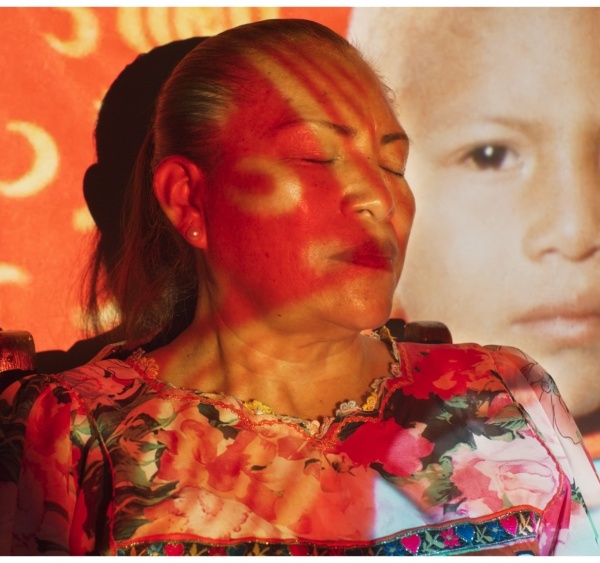A searching and scattershot portrait of displacement that’s as likely to resonate with Jia Zhang-ke devotees as it is to mystify those who are new to his work, “Caught by the Tides” finds the Chinese auteur returning the most pivotal characters and locations that have defined his movies over the last two decades. Then again, perhaps it would be more accurate to say that he never left them.
Tracing the faintest contours of a scripted love story around the scaffolding of some documentary footage that Jia has collected over the course of 22 years, this elusive chimera of a film strains to literalize the delicate relationship between time and memory — a theme that has become increasingly central to the director’s work since the Three Gorges Dam was constructed in 2006 (see: “Still Life”), submerging 13 entire cities and forever displacing the millions of people who once lived in them. Here, even more so than in his sweeping epics “Mountains May Depart” and “Ash Is Purest White,” Jia’s focus is squarely on resilience instead of erosion. How do we maintain a coherent sense of self, let alone love somebody else, in a world so volatile and impermanent that people will sink centuries of history to the bottom of the sea just to make way for tomorrow?
“Caught by the Tides” naturally struggles for an answer, but the film’s drifting power has more to do with how Jia frames the question. The story he tells here moves along the tectonic plates of technological advancement, and so it stands to reason that its images are defined by the tools used to capture them. Arresting as it to watch Zhao Tao, Jia’s wife and muse, reprise a role that she originated all the way back in 2002’s “Unknown Pleasures,” every shot of her silent but indomitable Qiaoqiao is first processed through the aspect ratio and digital clarity of the screen around her.
We first meet Qiaoqiao in the northern coal mining city of Datong at the turn of the millennium, where she works as a freelance model who’s managed by her boyfriend Brother Bin (“A Touch of Sin” actor Li Zhubin). More often than not, Jia shows her going about her business — dancing outside a retail store, fending off handsy street punks, etc. — in crisp HD video shot on an Arri Alexa. However, these scenes are intercut with low-def DV video that Jia recorded at the time this story is set. A group of women sing to commemorate a holiday in boxy 4:3. The manager of a dilapidated building called the Workers’ Cultural Palace gives a speech about his plans for the space.
At one point, Jia cuts from one format to another, as Qiaoqiao barnstorms into a nightclub without stopping as the image switches from lush widescreen to grainy DV. My initial assumption was that Jia had dressed Zhao to match a snippet of old footage he had taken in Datong, effectively creating a seamless ellison in time. And though a back-and-forth with Jia via the film’s sales team has muddied my understanding of exactly what he’s doing here, the destabilization of memory is achieved all the same, as “Caught by the Tides” palpably overlaps the past with the present in a way that frustrates our ability to parse out where one ends and the other begins. What do we hold onto as the world is remade before our eyes?
For Qiaoqiao and Brother Bin, the answer is each other. Kind of. Jia’s deeply textured romantic streak urges this movie forward much as it has so much of his recent work, but “Caught by the Tides” is far too elliptical to follow the rhythms of a conventional love story. Qiaoqiao’s unwillingness to speak — she only expresses words via text message, even though she has the ability to talk — lends itself to a vaguely defined relationship that’s only sketched in the broadest of strokes, and always with a focus on distance.
Despite lacking Qiaoqiao’s ambition, Brother Bin eventually decides to leave Datong for a bigger city (and some rather forgettable gangster business). Qiaoqiao ultimately spends the next two decades traveling across China in pursuit of her lost love, a chase that you should not be surprised to learn will bring her to the Three Gorges Dam along the Yangtze River. Technology advances at an exponential rate (Jia’s conceit with the cameras is strengthened by his focus on the couple’s evolving relationships to cell phones and robotics), and the film’s characters age in turn. Zhao can apparently look anywhere between 20 and 50 depending on the context of a given scene, while Li… can’t, to a degree that tends to deepen the film’s atemporal confusion. At least the scene where Brother Bin insists he’s 32 adds some humor to a movie that could use a bit more levity.
The dialogue, such as it is, relies more upon wistful dislocation. The written exchanges between Qiaoqiao and Brother Bin reminded me of Makoto Shinkai’s anime short “Voices of a Distant Star,” in which two teens on opposite sides of the galaxy try to maintain a text relationship in the face of severe time dilation. “So close, yet so far” reads one of the title cards here. Others quote lyrics from some of the songs that wallpaper the movie’s soundtrack, as Jia braids together an eccentric playlist of period-appropriate tunes that caught my attention for their sonic diversity, but will likely resonate with Chinese audiences for how they crystallize particular moments in time. One blares out as people celebrate their country landing the 2008 Beijing Olympics. Later, the end credits are accompanied by Cui Jian’s “Ji Xu,” a motivational anthem from the early days of the pandemic. The climactic scenes leading up to that needle drop are naturally interspersed with video that Jia shot on his iPhone.
These signifiers — and many others — slush around the film’s characters as they move back and forth with the waves, their feet desperate for some kind of solid ground to stand on. Everything changes except for their vague feelings for each other, to the point that it begins to seem as if their waterlogged affection is the only part of their identities that time isn’t able to dilute completely. “Caught by the Tides” is by nature an imprecise film, tethered to the buoys that Jia has collected over the years and prone to drifting through time without any clear sense of where it might take it.
Its emotional impact is muted and its romance almost purely conceptual, but the fact that Qiaoqiao and Brother Bin’s affection — or even more awareness — survive all of this tumult and transformation is moving unto itself, as is Jia’s dedication to documenting that change. He distills more than two decades of imperceptible flux into 111 minutes of fleeting human drama, the tender final moments of which find their power by finding the beauty in the embers of memory that time hasn’t been able to snuff out.
Grade: B-
“Caught by the Tides” premiered in Competition at the 2024 Cannes Film Festival. It is currently seeking U.S. distribution.





